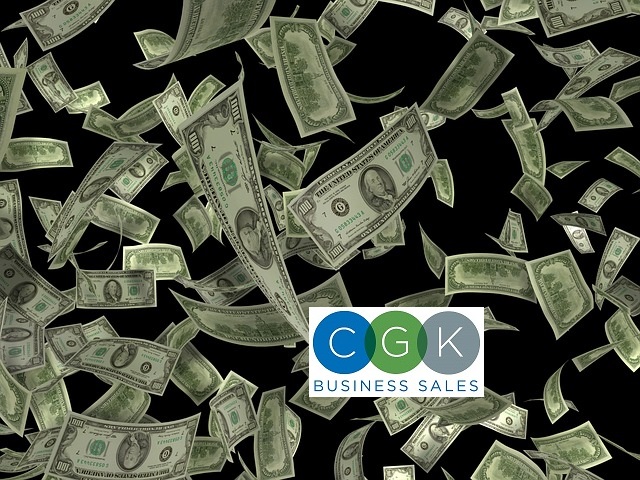How to Maximize Your Business Value Before You Sell

How to Maximize Your Business Value Before You Sell
Selling for the highest possible value is every business owner’s goal. A company acquires its value when it has a distinct culture and when its processes and products allow it to continue operating even under new ownership. With these value-maximizing tips, owners can increase their organizations’ value and stay on the right track to a profitable sale. This article focuses on how to maximize your business value before you sell.
Develop a Stable and Strong Management Team
Businesses with management teams that allow for independent function will command higher prices. The quality and depth of a management team is a crucial factor in a buyer’s valuation analysis. If an owner holds most of a company’s key accounts, potential buyers must consider that risk, and deals may be contingent upon the owner’s continued presence.
Document Earnings Sustainability
Revenue and earnings that grow over time, rather than those that fluctuate, will result in higher valuations. Consistent growth shows that an operation is solid enough to increase its market share and bring in new customers. When revenue rises and falls however, it indicates that the company is experiencing challenges or demand is affected by outside influences. By planning for future growth and outlining how it will be achieved through acquisition, expansion, and industry dynamics, owners will make their businesses look more compelling to potential buyers.
Have Effective Methods and Systems
Businesses must exist outside owners’ operations to have value. Owners who regularly take time off show confidence in their companies’ ability to function while they’re gone. When owners are always around, buyers tend to question the validity and strength of a company’s management team and methods. Buyers’ goodwill only goes so far when determining a company’s value, and it’s up to the seller to make up the difference.
Keep Good Financial Records
Inaccurate financials are a big concern for lenders and buyers. Valuations are based upon numbers, and the more accurate a company’s financial statements are, the more likely they are to endure the due diligence process. For companies with revenue over $10 million, a Quality of Earnings report (QoE) is a worthwhile investment. When that’s not practical, professionally reviewed financials are preferred over those prepared internally.
Keep Personal and Business Expenses Separate
When a company’s financial statements are free of an owner’s personal expenses, lenders and potential buyers are more likely to see the credibility in those numbers. Buyers dislike uncertainty, and asking them to believe that random expenses are ‘necessary’ creates it. When a company’s EBITDA (earnings before interest, taxes, depreciation, and amortization) is, in part, based on an owner’s expenses, sellers find it hard to get their asking prices.
Plan for a Smooth Transition
When an owner sells his or her company with plans to step back gradually, they’re planning for the organization’s future. Generating a solid transition plan often creates a roadmap by which management teams can improve their roles in daily operations. When sellers find ways to delegate their authority, it improves an organization’s structure and increases its value.
Build a More Diverse Customer Base
Companies with narrow market segments just aren’t worth as much. When more than 20% of a company’s revenue comes from one customer, valuations are lower. Losing that level of revenue will likely eliminate a company’s profits, so it’s important to consider this risk when preparing a valuation analysis. When owners diversify their offerings and bring in a wider range of customers, their businesses increase in value.
Improve the Company’s Reputation
If there’s one thing buyers are looking for, it’s industry leaders. A savvy buyer will consider customers’ feedback, go to trade shows and conferences, and glean all the information they can from suppliers, partners, and competitors. With charitable contributions, attendance at local events, and other measures, it’s easy to boost a business’ reputation and its monetary value.
Find More Suppliers
A narrow supplier base also results in a lower valuation. Many owners buy from several sources, simply to reduce the risk of supply chain disruptions. This applies equally to the work force, especially in specialized fields. Buyers often ask “what if” questions, and it’s important for sellers to have answers.
Have an Operational Base
While not all businesses are location-dependent, buyers are often reluctant to move immediately after a sale. When selling a business, ensure that the new owner will be able to stay in the current location for at least three to five years via a lease or building purchase. Location is crucial to restaurants and retailers, but it’s just as important to manufacturers and wholesalers.
In many instances, team members choose to live close to their workplaces, and relocation may put their jobs at risk. If a lease is due for renewal and the new owner will need to renegotiate it, uncertainty will reduce the valuation. Consider a lease option, which gives the buyer the right, rather than the obligation, to extend the lease and eliminate their location-related worries.
Owners Should Get the Maximum Value From Their Businesses
Taking these simple steps when preparing to sell a business may take some time now, but it will pay dividends in the future—such as a higher sale price. However, these improvements won’t come right away; it’s a time-consuming process. Even if the company isn’t going up for sale yet, some degree of standardization is crucial. Be sure to know how to maximize your business value before you sell. Start by:
- Streamlining the company’s systems and documents
- Keeping updated financial records
- Separating business and personal expenses
- Stepping away from daily operations
- Building a stable location
- Setting up an advisory and management team that knows the company’s inner workings
It may also be a good idea to consult an expert for customized guidance and help. A business broker can help create a succession strategy and implement programs to retain key team members under new ownership.
Whether a company’s success is measured by its profit margins or the amount of work an owner puts in, it’s important to get the highest possible value when selling. By following the strategies listed here, owners can maximize the value of their companies and put more money in their pockets when closing the deal. Call or email us below for an expert business valuation. Hopefully, this article on how to maximize your business value before you sell has been a worthwhile read.

